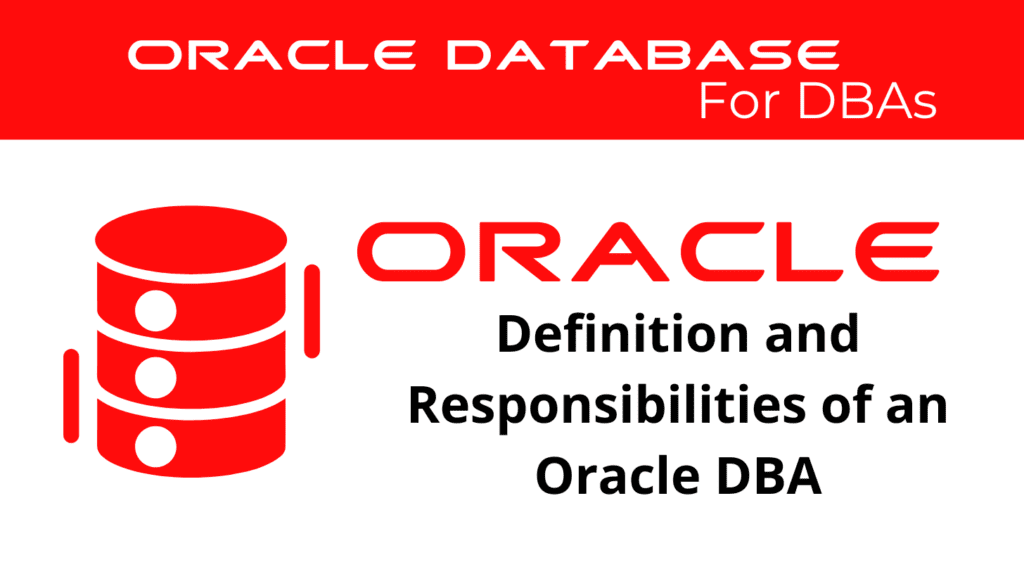
Duties of an Oracle Database Administrator are many and are crucial in managing and maintaining database systems for businesses of all sizes. They ensure data is secure, available, and efficiently managed. In this blog, we will delve into the responsibilities of an Oracle DBA, explore examples of how Oracle Database is utilized in various industries, and provide insights into this vital role.
What an Oracle Database Administrator Does
Responsibilities of an Oracle DBA includes a range of tasks that ensure the smooth operation of an organization’s database systems. These tasks include database design, implementation, maintenance, and security.
Main Responsibilities
- Database Design and Implementation: DBAs design and implement database systems to meet the needs of the organization. This involves creating database structures, defining access controls, and ensuring data integrity.
- Maintenance and Monitoring: Regular maintenance and monitoring of database systems are crucial to prevent issues and ensure optimal performance. DBAs perform routine backups, apply patches, and monitor database performance.
- Security Management: Ensuring the security of database systems is a top priority. DBAs implement security measures to protect data from unauthorized access, data breaches, and other security threats.
- Performance Tuning: DBAs analyze and optimize database performance by tuning SQL queries, indexing, and adjusting database configurations.
- Troubleshooting and Support: When issues arise, Responsibilities of an Oracle DBA is also troubleshoot and resolve problems to minimize downtime and ensure data availability.
See more about Responsibilities of an Oracle DBA on Oracle’s website!
Key Skills and Qualifications for an Oracle DBA
To be an effective Oracle DBA, certain skills and qualifications are essential. These include technical expertise, problem-solving abilities, and effective communication skills.
Essential Skills
- Technical Expertise: Proficiency in SQL, PL/SQL, and database management tools is crucial. DBAs must understand database architecture, backup and recovery processes, and performance tuning techniques.
- Problem-Solving Abilities: DBAs need strong analytical and troubleshooting skills to resolve complex database issues. They must be able to diagnose problems quickly and implement effective solutions.
- Communication Skills: Effective communication is important for DBAs to collaborate with other IT professionals, management, and end-users. They must be able to explain technical concepts clearly and provide support when needed.
Qualifications
- Education: A degree in computer science, information technology, or a related field is typically required. Some employers may also require certification in Oracle Database Administration.
- Experience: Hands-on experience with Oracle Database systems is essential. DBAs get expirience through internships, entry-level positions, or specialized training programs.
Future Trends and Challenges for Oracle DBAs
The duties of an Oracle Database Administrator is constantly evolving with new technologies and industry trends. Staying updated on these trends and anticipating challenges is crucial for success.
Future Trends
- Cloud Computing: The shift to cloud-based database solutions is growing. Responsibilities of an Oracle DBA includes be proficient in managing cloud environments and understanding cloud security practices.
- Automation: Automation tools are becoming more prevalent, reducing the need for manual tasks. DBAs should embrace automation to improve efficiency and focus on strategic initiatives.
- Data Security: DBAs must stay informed about the latest security protocols and implement robust security measures.
Challenges
- Data Volume: The exponential growth of data presents challenges in storage, management, and processing. DBAs must develop strategies to handle large datasets efficiently.
- Regulatory Compliance: Adhering to regulatory requirements is critical in many industries. DBAs need to ensure that databases comply with relevant regulations and standards.
- Skill Upgradation: Continuous learning is essential to keep up with technological advancements. DBAs must invest in ongoing education and certification to stay relevant in the field.
Conclusion
The duties of an Oracle Database Administrator is multifaceted and vital for the smooth operation of database systems. By understanding their responsibilities, key skills, and the evolving trends in the industry, DBAs can effectively manage and optimize database environments. As the landscape of data management continues to evolve, staying updated and adaptable is key to success.
Be Oracle certified, this world is full of opportunities for qualified DBAs!





